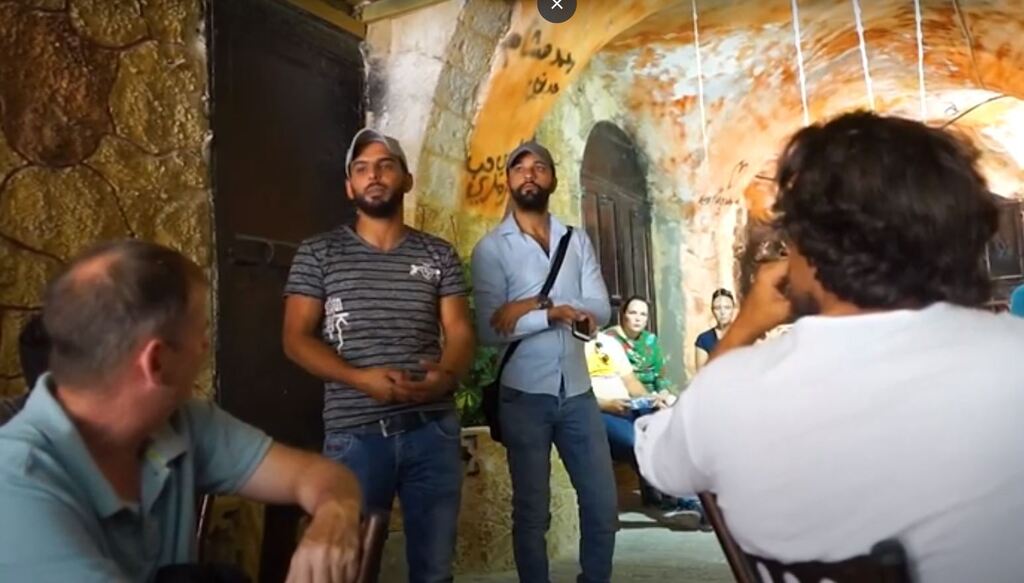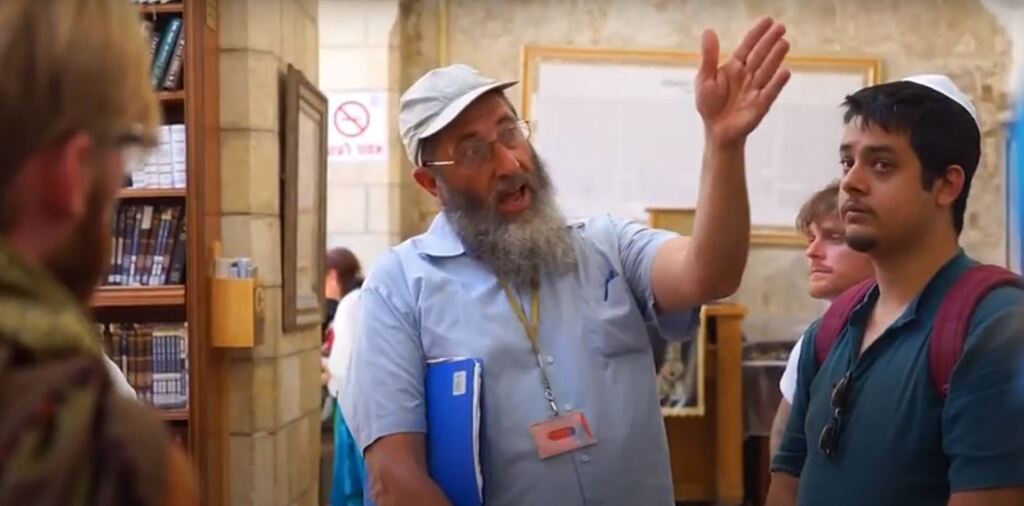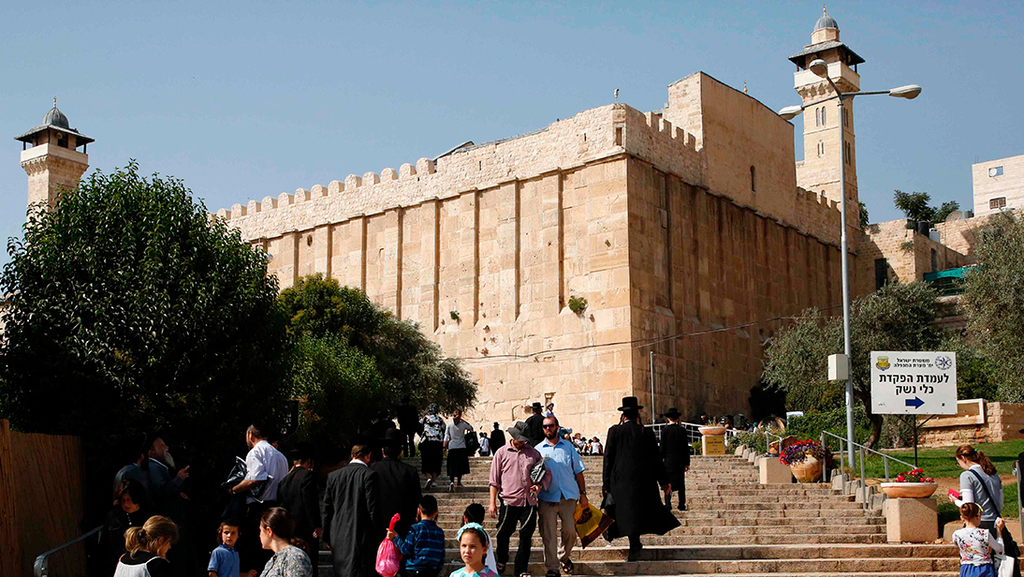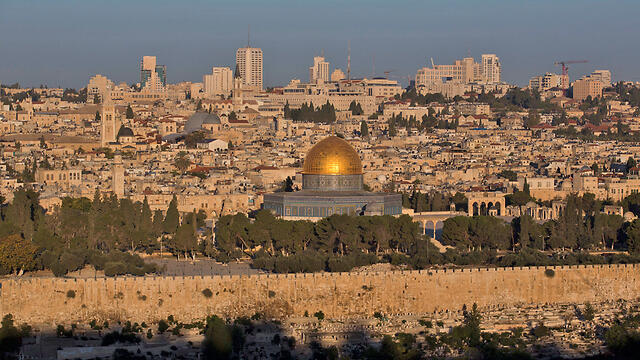Businesses should come out about their political opinions and not hide behind shiny logos and professionally managed brands. We as customers want to know how a company and its owners really think and indeed this is a growing trend as corporations and companies seek to make themselves more accessible and personal.
But with their recent decision to “end sales of our ice cream in the occupied Palestinian territories,” Ben & Jerry’s board of directors caved on an issue they don't really understand.
4 View gallery


Hearing both sides of the Israeli-Palestinian conflict on a tour in Hebron
(Photo: Screenshot)
Ben & Jerry's said they will end sales in the "Occupied Palestinian Territory" - but what exactly does this mean?
Will they stop selling in the Jerusalem neighborhoods of Gilo or Beit Safafa for example, or in the Old City - all areas that have not been acknowledged by the international community as part of Israel?
What about the Golan Heights that used to belong to Syria and is also not acknowledged as Israeli territory by the international community? Will Ben & Jerry’s expand their boycott to the Golan Heights in the future?
The ice cream drama presents an opportune moment for people abroad to ask themselves questions about the conflict and try to get some answers.
Israel is complicated and there are many narratives that can describe the reality here. Even historical facts are disputed within Israel - and all the more so when it comes to the conflict with the Palestinians.
The way for people who would like real answers is to travel here (when that becomes possible again), see the situation with their own eyes and judge for themselves.
4 View gallery


Hearing both sides of the Israeli-Palestinian conflict on a tour in Hebron
(Photo: Screenshot)
Political dual narrative tours to Israel and the Palestinian territories are precisely the answer to such curiosity, allowing tourists learn about the conflict from both sides and form an opinion based on the reality on the ground.
Here are a couple of recommendations for tours to learn about the Israeli-Palestinian conflict from the people who live it.
Hebron - a tale of two cities
Some 215,000 Palestinians and around 800 Jews live in the West Bank city of Hebron, one of the oldest cities in the world that has been settled uninterrupted from ancient times to this day. Its Old City is a UNESCO World Heritage Site.
Hebron is considered holy by all three monotheistic faiths - Judaism, Islam and Christianity - because of its connection to Abraham (or Ibrahim in Arabic), who purchased land in the city and is believed to be buried there.
To Jews, Hebron is the second holiest city after Jerusalem; and to Muslims, who call it Al-Khalil, it is one of the four holy cities along with Mecca, Medina and Jerusalem.
At the center of the Old City is a compound known to Jews as the Tomb of the Patriarch, where Abraham - who purchased the plot for 200 silver shekels from Ephron the Hittite - is believed to have been buried along with his son Isaac and his grandson Jacob.
The three are the patriarchs of Judaism, and according to Jewish tradition three of the four matriarchs - Sara, Rebecca and Leah - are also buried there. To Muslims the site is known as al-Haram al-Ibrahimi and is the burial place of Ibrahim, his son Isaaq, and his son Yaqoob.
It sounds complicated and it is. The city is a historical, religious and political powder keg that tends to explode every few years and the best way to understand this complexity is to book a dual narrative tour.
Abraham Tours has offered such a tour for many years, with one section led by an Israeli guide presenting the narrative of the Hebron settlers and another by a Palestinian guide who takes the group to a Palestinian home to hear firsthand testimonies of what life in Hebron is like for Palestinians.
Jerusalem, where recollections may vary
The years 1917, 1948, 1967 and 1993 are crucial in the history of Jerusalem, which have shaped the Holy City’s political status quo and its geography and architecture over the past century.
Names and interpretation of historical events and places in Jerusalem differ dramatically between Israelis and Palestinians and a dual narrative tour is recommended to understand the complexity in the city.
Listening to the guides and hearing different perspectives can shed light on how history is perceived and help understand current daily life in this disturbed historical framing.
You can try out this virtual tour from home and book a real tour when the skies reopen and it is possible to visit God’s city.
Uri Sharon is a tourism professional with a Master's degree in Tourism Development and Planning from Haifa University. He is the founder and editor of trvltrend.com and has many years of experience in digital and offline marketing, e-commerce, integrative media planning and public relations. The main focus of his writing is digital trends in travel and hospitality.



